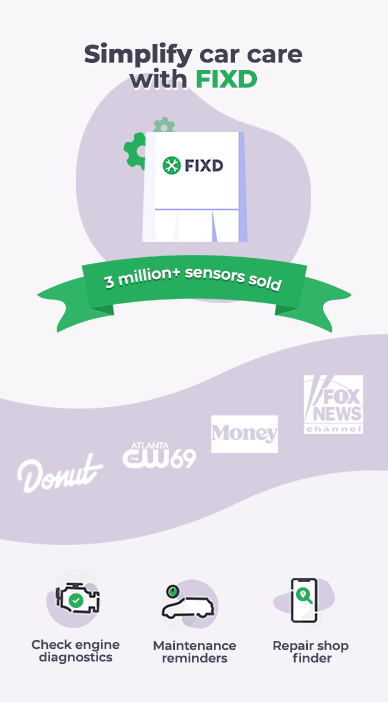Auto loans are getting longer, and while the average car loan is just under 72 months (6 years), some lenders are willing to offer financing for 144 months.
A 144-month auto loan is like any other car loan, but it comes with a longer repayment term spanning 12 years.
Most lenders won’t give you the option to finance your car for 144 months. Generally, auto loans with a 144-month repayment period are limited to high-priced luxury or exotic vehicles (think Lamborghini, Ferrari, Aston Martin, and Bentley), and classic, antique, or collectors cars.
Let’s discuss what you need to get a 144-month car loan, the top 10 lenders for 144-month car loans, the advantages and disadvantages of 12-year financing, and a few possible alternatives.
What credit score do I need to buy a $100,000 car?

There’s no exact credit score requirement to buy a $100,000 car, or even a car that’s more expensive. However, most lenders will probably look for a minimum credit score in the mid-700s, in addition to verifying your income, assets, and other factors that show you can pay back the loan. Woodside Credit, a lender specializing in financing for exotic, antique, classic, and collector vehicles, requires a good, established credit history and a FICO credit score of 700+.
Top 9 144-month auto loan lenders
- SnoCope Credit Union
- Woodside Credit
- LightStream
- Library of Congress Federal Credit Union
- Collectors Auto
- Collector Car Lending
- Braman Bentley
- Merlin Auto Group
- Motors Unlimited
Pros and Cons of a 144-month auto loan

A 144-month auto loan is more than twice as long as the average car loan, which means your monthly payments will be lower, but that you’ll pay more interest over the life of the loan. Like all loans, a 144-month car loan has its own set of pros and cons.
Pros
Lower monthly payments can help you afford more car
By spreading your payments out over 144 months, you can significantly reduce the amount of money you have to pay on each monthly installment. For example, if you have a 72-month, $160,000 auto loan at a 5% interest rate, your monthly payment will be around $2,577. If you buy the same car and take out a 144-month auto loan at a 7% interest rate, your monthly payments will be just over $1,645.
It can help you finance an investment in a car
Most cars depreciate in value over time, but certain cars can actually increase in value. Classic cars, certain sports cars (like the Porsche 911 Turbo and several Ferrari models), and muscle cars from the 1960s and 70s are just a few of the vehicles that have, historically, appreciated over time. A 144-month auto loan may be able to help you make investments in these types of high-end vehicles (though you should be well aware of the risks associated with these investments and the very real possibility that you could lose money).
Cons
May have high minimums or only be available on certain types of cars
Lenders who offer 144-month auto loans may have minimum loan amounts, such as $100,000, or only approve financing for certain vehicles (like classics or exotics).
Fewer lenders to choose from
The majority of lenders will limit the length of their auto loans to 72 or 84 months. Some lenders may have an option for 96-month auto loan financing, but only a very select few will be willing to let you finance a car over 144 months, leaving you with a very limited number of lenders to choose from.
Stricter eligibility criteria
Eligibility criteria for a shorter-term loan will be significantly less strict than what 144-month auto loan lenders expect. A 12-year auto loan will usually only get approved if the borrower has a stellar credit history, a high income, and a minimum credit score in the mid or upper 700s. In addition, these loans may also require you to put at least 20% down.
More expensive
144-month auto loans tend to come with higher interest rates, and because your loan lasts for longer, it will cost you much more over the life of the loan.
It will take longer to pay off the car
144 months is a long time to pay an auto loan, and you won’t fully own the car until 12 years after you buy it. With a shorter loan, you’ll get to the finish line faster and can enjoy complete ownership of your automobile in half the time or less.
| Pros | Cons |
| May help you to afford a more expensive car | May only be available on exotic, classic, or high-priced vehicles |
| Lower monthly payments than a loan for the same amount with a shorter term | Fewer lenders to choose from |
| Can help you finance an investment in an exotic car | Tougher credit and income requirements |
| Higher interest rates | |
| It will take longer to pay off the car | |
| May require a sizable down payment |
Alternatives to 144-month auto loans
If you want to buy a high-priced, exotic, or classic car but don’t want to use a 144-month auto loan, there are still a couple of alternatives you can consider.
1. Buy with cash
If you have the funds to buy the car with cash, you can avoid having to worry about loan applications, interest rates, and monthly payments. Of course, this option requires you to have a lot of cash on hand, and if you use it all to purchase a vehicle, you won’t be able to spend it elsewhere.
2. Take out a shorter loan
Qualifying for a 144-month auto loan can be challenging, and even if you do get approved, 12 years is a long time to pay off a car. A shorter loan term will open up your options and allow you to compare many different lenders, and will probably save you money in the long run.
3. Use home equity
If you own a home, you can take out a loan against your home equity and use the proceeds of that loan to buy a car. Home equity loans often have competitive interest rates and a long repayment period (usually between 10–20 years).
Lenders typically impose limits on home equity loans based on how much you owe on your mortgage relative to your home’s value. Most lenders allow you to borrow up to 80% of the equity you have in your home. So, if your home is worth $500,000 and you owe $200,000, you can borrow up to 80% of the $300,000 you have already paid off, for a loan maximum of $240,000.
If you decide to take out a home equity loan to buy a car, just remember that it will reduce your ownership in your home, and that these loans come with closing costs of roughly 2%–5% of the loan amount. And, it should go without saying that cars are a very risky investment proposition, and that investing in them can expose you to potential losses.

FAQs
Can you get an auto loan for 144 months?
You may be able to find an auto loan with a repayment period of 144 months, but these loans are not common and tend to be limited to vehicles with a purchase price of over $100,000.
What is the longest term you can get on an auto loan?
Though a typical auto loan ranges from 48 to 84 months, it may be possible to get an auto loan for certain higher-priced vehicles with a term length of up to 180 months (15 years).
Does Chase offer 84-month car loans?
Chase does not offer 84-month car loans. The maximum loan term length with Chase Auto is 72 months (6 years).
What credit score do you need for a Woodside Credit loan?
To earn approval for a Woodside Credit auto loan, you’ll usually need to have a credit score of 700 and up, along with an established history of making on-time payments on other loans.
Which credit score does Mercedes-Benz Financial look at?
According to online forums, Mercedes-Benz Financial uses the Fair Isaac Corporation (FICO) Score 9. The FICO Score 9 is designed to help lenders accurately predict how likely a borrower is to pay back their loan, and is the newer iteration of the FICO Score 8.
What is the best way to finance a car?
The best way to finance a car depends on your personal preferences, financial situation, and goals. While some people choose to buy a car using cash, most buyers will take out a loan, either through a dealership, bank, or credit union.
Generally, financing through a dealership offers the most convenience, while banks and credit unions will offer lower interest rates. If you still need help deciding where to obtain financing, our guide comparing financing through the dealer, bank, and credit union can help you make an informed decision.
How do I get approved for a loan on an expensive car?
The best way to get approved for a loan on an expensive car is to demonstrate your ability to repay the loan. You can do this by having an established credit history, a very good credit score (740 and up), putting down at least 20%, and taking out a loan with a shorter term.
Should I finance through the dealer or the bank?
Choosing to finance your car through the dealer or the bank comes down to personal preference. Dealers are the more convenient financing option and are more likely to issue loans to less-qualified borrowers, while banks have tougher eligibility requirements, but can offer lower interest rates.
If you would like to know more about the differences between dealer, bank, and credit union loans check out our article: Bank, Dealership, or Credit Union? Get the Best Auto Loan
Article Sources
- Chase. (2021, June 1). Financing a car guide: What is it & how to do it
- Woodside Credit. (2022, September 15). Exotic and collector car loan FAQs.
- Fair Isaac Corporation. (2015). FICO Score 9.
- Akin, J. (2020, October 3). What’s the average length of a car loan? Experian.
- Federal Trade Commission Consumer Advice. (2022, May 10). Home equity loans and home equity lines of credit.
- Progressive. (n.d.). Cars that appreciate in value the most.

Jonathan is a writer with over 10 years of experience and a former insurance agent. Jonathan’s focus is to simplify personal finance and help equip you with the tools you need to make smart financial decisions. Despite the criticisms, he remains committed to driving a manual transmission and prides himself on smooth shifting, even in rush-hour traffic.













